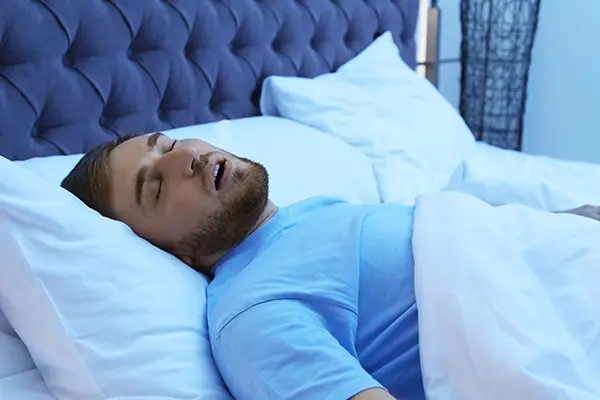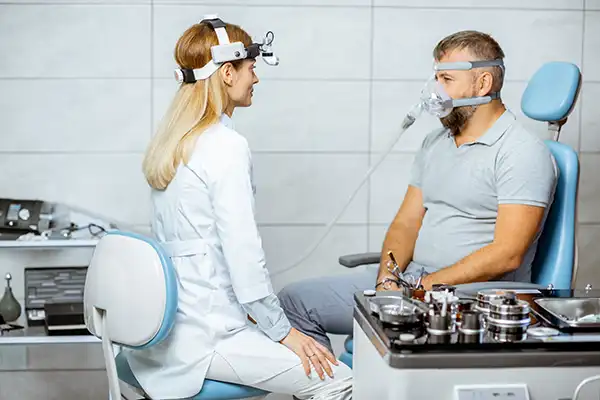Sleep Apnea Treatment Folsom, CA Many people have sleep apnea, but they don't know it. It is estimated that nearly 24 million Americans suffer from the disorder. Many people have sleep apnea, but they don't know it. It is estimated that nearly 24 million Americans suffer from the disorder. If your partner or close friend has been complaining about not getting enough sleep, you might want to ask them if they think they have this condition. If so, there are many things we can do at Highridge Dental Care to help alleviate their symptoms. What Is Sleep Apnea And What Are The Symptoms?Sleep apnea is when a person stops breathing during sleep for short periods of time. This can happen up to 30 times per hour during the night, and it lasts about 10 seconds each time. The symptoms include loud snoring, choking sounds or pauses in breathing, gasping or restless movements that might wake them from sleep. Many people with sleep apnea only experience mild effects like waking up more often at night or feeling sleepy throughout the day. Others have much more serious problems, such as an increased risk for heart disease, stroke, and diabetes, if left untreated. How We Diagnose Sleep ApneaSleep apnea can be diagnosed by taking a medical history and doing a physical exam. A sleep study is the most accurate way to diagnose sleep apnea. The participant will wear an apnea monitor, which records when they stopped breathing for more than 10 seconds during their sleep (during REM or NREM stages.) If there are at least 15 episodes of interrupted breathing per hour, then this person has obstructive sleep apnea. There may also be pauses in oxygen levels listed on the lab report that occur because each time someone stops breathing, it takes some time for them to start up again with sufficient airflow. Oral Appliance TherapySleep apnea patients should wear an oral appliance to keep their airways open at night. This is the most common treatment for sleep apnea and dental appliances are typically custom fabricated by a dentist or orthodontist, so it's important to consult with us before getting anything done. These devices work by holding the lower jaw forward during sleep which prevents the tongue from blocking airways in the back of the throat and mouth area. Oral appliance therapy also offers other treatments like night guards for teeth grinding, which relieve pressure on sensitive facial nerves and prevent tooth destruction. Oral appliances can be uncomfortable and may take some time to get used to, but they're often recommended as the first line of defense against moderate cases of obstructive sleep apnea because they keep the soft tissue in place while strengthening muscles around the jawline.  CPAP MachinesA CPAP (continuous positive airway pressure) machine is a mask that fits over the mouth or nose to deliver breathing assistance. It's often used as an alternative treatment for people who don't find oral appliances comfortable, but it can also be helpful in cases of more severe sleep apnea where simply wearing a dental appliance isn't enough. A CPAP device blows pressurized air into the throat and lungs through tubes connected by hoses from a compressor on the bedside table. Surgery To Treat Sleep ApneaSurgery may be necessary for people who have more severe cases of sleep apnea, and it's usually recommended only after a person has tried other treatments. Surgery is done to remove the tonsils or adenoids is one option that might help. However, this option carries various risks which is why we only recommend it as a last resort. If you have any questions regarding sleep apnea, reach out to Highridge Dental Care at (916) 983-9929 and we'll be glad to assist in any way we can. |
 Phone(916) 983-9929 HoursMonday -Thursday: 8:00am - 5:00pm Friday: 8:00am - 2:00pm - By appointment |